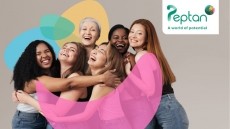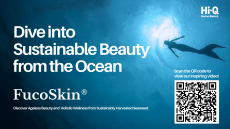Why footprint is worth more than bottom line for Asia’s halal cosmetics brands — top VC

Baiza Bain, managing partner at Kuala Lumpur-based Ficus Venture Capital, and formerly one of the most prominent figures in Islamic private equity when he was managing director of Amanie Advisors, see halal cosmetics as a “massively growing category” across the board.
“We aren’t just encountering startups, we are seeing big companies, especially in markets like Korea that want to be halal because there is a market for it,” Baiza said.
“Five years ago, everything that was hot was from Europe and the US. But now consumers are more discerning; they want something that is customised for them, and more importantly, they want something that is halal.”
Korea is a hotbed of activity in this sphere, where fledgling companies appear to have identified the potential the market holds. Their approach, he says, has been to collaborate with global Western companies due to their better knowledge of Asian hair and skin than those in Western countries.
“They’ve worked with these guys to customise their lines; they have also incorporated the halal certification to be part of the product.
“From my conversations with these startups, they want to be halal because it opens up the market,” Baiza added.
Reach and approach
Early-stage Islamic-compliant cosmetics businesses should look at their reach and approach to halal certification right from the start to appeal to venture capital firms like Ficus.
Though there are many halal certifiers across the world, they would be advised to opt for the stringent standards required by Malaysia’s JAKIM, the world’s pre-eminent accreditation body, which Baiza believes offers “a halal passport to 64 countries”.
“We are monitoring a few in this particular space. Obviously, I can’t name them because other VCs will jump on them, but we have been looking at them with interest,” he said.
Ficus has put the cosmetics category on its watchlist, not least because one of its partners, Tan Swee Yeong, was an early investor in a Malaysian beauty platform, Hermo, which was acquired by iStyle 2017 for $13.2m.
That suggested the segment’s potential as it shows the potential as the Japanese heavyweight was concerned mostly by its reach, much more so than its bottom line.
“They weren’t making money at all but iStyle wanted Hermo’s footprint,” said Baiza.
“From that standpoint, you can see what the big guys want in this region: if you have the footprint and the reach, whether you’re making money or not is insignificant so you have to get that audience."






















